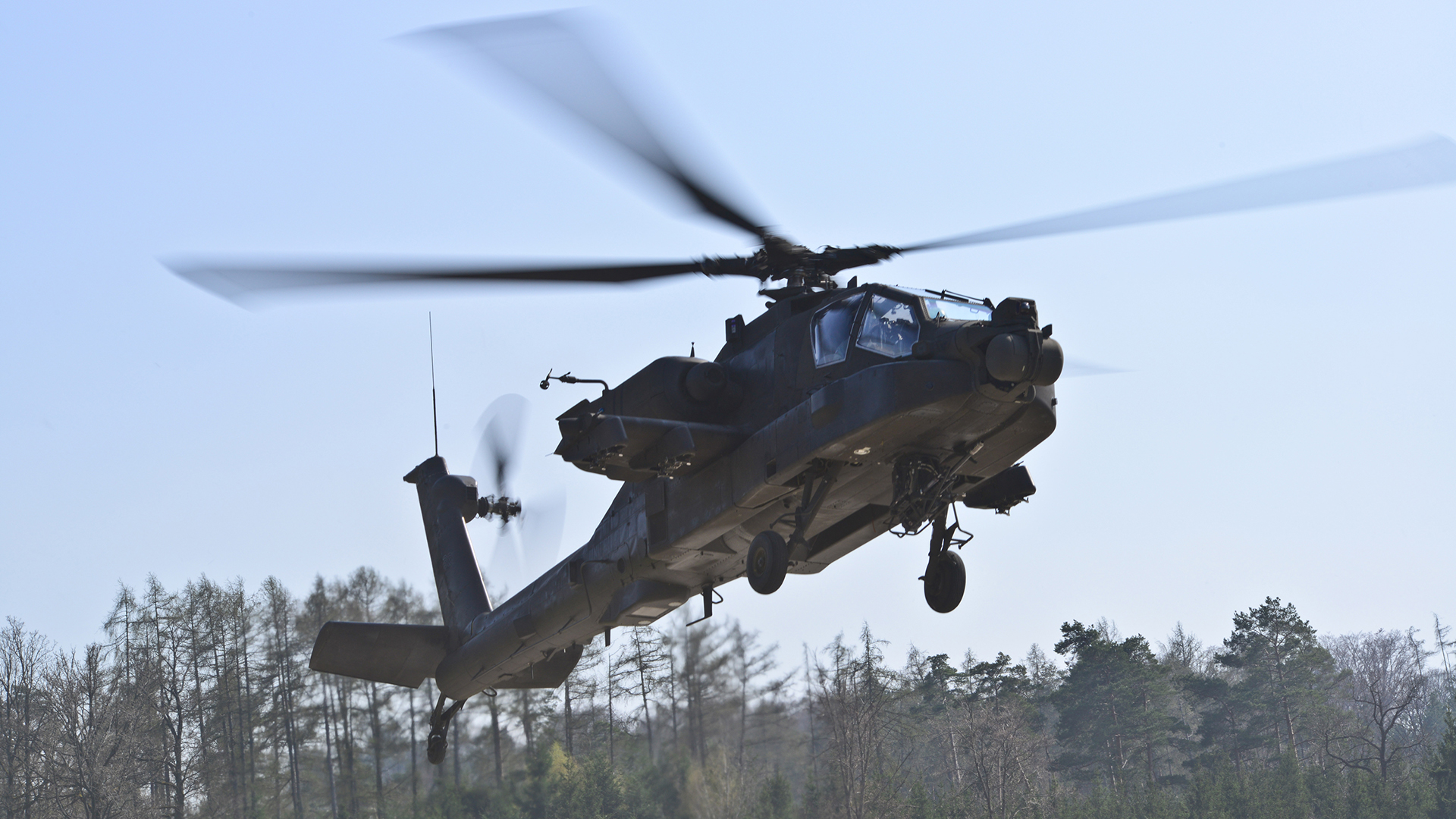

For the 13th time, a War Thunder player has shared sensitive military information on one of the video game’s forums.
Developed by Gaijin Entertainment, War Thunder is a multiplayer video game that provides players with realistic simulations using U.S. and foreign military equipment. The gamers’ stickler for accuracy has prompted several users to attempt to win arguments on the game’s forums by sharing sensitive information about a variety of weaponry – including F-117 Nighthawks.
Niche Gamer, a news and reviews website about video games, was first to report that a War Thunder player recently shared the technical manual for the AH-64D Apache Longbow helicopter. The Apache is the Army’s attack helicopter, which first entered service in the 1980s. Production on the AH-64D began in 1997, and the AH-64E is the latest version of the helicopter.
The technical manual is restricted to service members, Defense Department civilians, and military contractors, and that means posting it violated War Thunder’s rules, a forum moderator noted. Those rules explain that even declassified information can be “restricted” if it includes technical data for military technologies that cannot be exported.
Subscribe to Task & Purpose Today. Get the latest military news and culture in your inbox daily.
Anton Yudintsev, founder of Gaijin Entertainment, confirmed that the AH-64D Apache Longbow technical manual was shared on a War Thunder forum on Sept. 15, and then a moderator quickly deleted the post.

“As we’ve hired more people and simplified the decision-making process within the community management team, we now detect posts like this within minutes and act instantly,” Yudintsev told Task & Purpose on Thursday. “We took those steps to help us fight against these leaks. Unfortunately, there is no way to 100% guarantee that someone else wouldn’t go crazy one day and do one more post.”
One reason why some gamers have recently leaked sensitive military information on War Thunder forums is that they do not understand declassified information can still be considered “restricted,” and thus violates the game’s rules, Yudintsev said.
In fact, many of the restricted manuals are available for purchase on websites that appear to be legitimate, he said.
“So, some of the users purchase them and try to bring them to us, even though those documents are clearly marked as restricted,” Yudintsev said. “We’re kindly asking our players to never do it. We won’t be using any materials that have any kind of security limitations. The only thing that those users can achieve is a permanent ban at our forums.”
The Army declined to comment specifically about the AH-64D Longbow technical manual being shared on War Thunder.
“We are not going to comment on specific platforms,” said Army spokesman Jason Waggoner. “Any unauthorized disclosures of classified or sensitive information are a serious threat to national security and something that the Army and the Department of Defense take very seriously.”
The term “export-controlled data” applies to any information that could reasonably be expected to hurt U.S. national security if exported, according to the Pentagon. That data includes unclassified information about technology, software, and commodities.
Under the International Traffic in Arms Regulation, sharing military technical data with a foreign national is considered an export, even if it takes place in the United States, said Gregory Sanders, who analyzes U.S. government spending for the Center for Strategic and International Studies think tank in Washington, D.C. In order to be legal, those exports require a license.
“Such rules can be harder to enforce in the present information environment,” said Sanders, deputy director and fellow with the Defense-Industrial Initiatives Group at CSIS. “That gets to why cyber security has had steadily growing attention and the U.S. government is attempting to ensure that cyber security practices are robust for military members, civilian employees, and industry.”
The latest on Task & Purpose
- 101st and 82nd Airborne Division soldiers deploying to Eastern Europe
- Have you seen me? All the best ‘Missing F-35’ memes
- Marine Corps searching for F-35 after pilot ejects in South Carolina
- Senate bypasses Tuberville on Joint Chief nominations for Brown, George
- Search for missing Marine F-35B finds debris field
